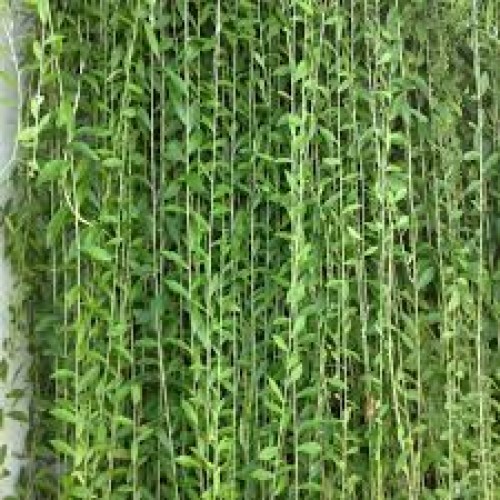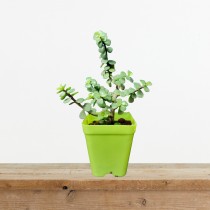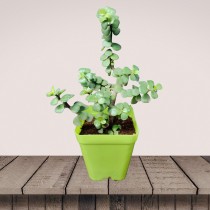60%
off
off
-
Sold
-

out
Curtain Creeper Plant (Tarlmounia elliptica)
Botanical Features & Nature
- Scientific Name: Tarlmounia elliptica
- Common Names: Curtain Creeper, Vernonia Creeper, Parda Bel
- Family: Asteraceae
- Origin: Native to India, Bhutan, Burma, and Thailand
- Growth Habit: Fast-growing, evergreen vine with trailing stems that create a curtain-like appearance
- Height: Can grow up to 8-10 meters when supported
- Foliage: Dense, green leaves that provide a lush backdrop
- Flowers: Small, star-shaped flowers in shades of yellow, orange, red, pink, or white, blooming primarily from February to March
Care & Cultivation
- Sunlight: Prefers full sun to partial shade; at least 3-6 hours of sunlight daily
- Soil: Thrives in fertile, well-drained soil with a slightly acidic to neutral pH
- Watering: Water regularly to keep the soil moist; reduce frequency during rainy and winter seasons
- Temperature: Ideal temperature range is between 15°C to 24°C (59°F to 75°F); protect from extreme cold
- Humidity: Prefers low humidity environments; avoid overly humid conditions
- Fertilization: Apply a balanced fertilizer once a month during the growing season (spring and summer)
- Pruning: Prune in early spring or late fall to control growth and maintain desired shape
- Propagation: Easily propagated through seeds or stem cuttings
Uses & Benefits
Ornamental Applications
- Ideal for covering walls, fences, balconies, and pergolas, providing a natural green curtain effect
- Enhances aesthetic appeal in gardens and urban spaces
- Can be used as a natural privacy screen or green wall
Environmental Significance
- Attracts pollinators such as bees and butterflies, promoting biodiversity
- Provides shelter and nesting sites for birds and beneficial insects
- Contributes to air purification by absorbing pollutants
Advantages of Planting Curtain Creeper
- Fast Growth: Quickly covers structures, providing shade and privacy
- Low Maintenance: Requires minimal care once established
- Drought Tolerant: Adaptable to various soil types and conditions
- Space-Efficient: Suitable for small gardens, balconies, and urban environments
- Non-Toxic: Safe for humans and pets
Cultural Significance
- Commonly used in Indian households as a natural curtain (Parda Bel) for balconies and verandas
- Symbolizes natural beauty and harmony in traditional landscaping

